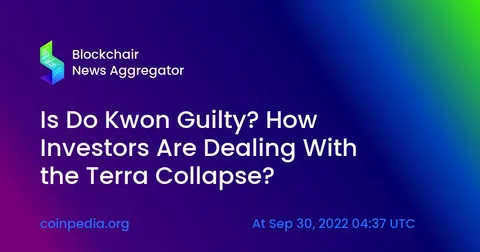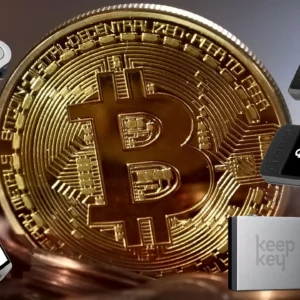The cryptocurrency world has always been filled with innovation, ambition, and, at times, controversy. One of the most shocking events in recent years was the dramatic collapse of Terra, an ecosystem that wiped out $40 billion in market value almost overnight.
Do Kwon, the co-founder of Terraform Labs and the mastermind behind the Terra blockchain, now finds himself at the center of a legal storm. His not guilty plea in court has sparked debate across the financial and crypto communities. What does Kwon’s stance mean for the collapse of Terra, and how does it shape the future of cryptocurrency?
In this article, we will delve deep into the intricacies of Kwon’s guilty plea, explore the events leading up to the Terra collapse, examine its broader implications on the cryptocurrency industry, and discuss potential paths forward for digital currencies in a post-Terra world.

The Rise and Fall of Terra: Setting the Stage
The Terra blockchain was once heralded as a game-changer in the cryptocurrency ecosystem. Its native token, LUNA, and its algorithmic stablecoin, TerraUSD (UST), were innovative financial tools that sought to redefine how people interact with digital money. Terra’s appeal lay in its promise of decentralized finance (DeFi) with accessible yields, allowing everyday users to earn significant returns.
However, the Terra collapse sent shockwaves throughout the crypto world. A series of events triggered a catastrophic failure in UST’s peg to the US dollar, leading to a death spiral for both UST and LUNA. Within days, billions of dollars were wiped out, leaving retail investors and institutions reeling.
Do Kwon, as the public face of Terraform Labs, faced accusations of negligence, fraud, and manipulation. Regulatory authorities in multiple countries began investigating his role in the collapse. When Kwon was arrested and subsequently pleaded not guilty to charges related to the Terra collapse, the stage was set for a high-profile legal battle that could have profound implications for the cryptocurrency industry.
What Kwon’s Guilty Plea Signals to Investors
Kwon’s not guilty plea can be interpreted as a bold statement of confidence in his innocence. From a legal perspective, it shifts the burden of proof onto the prosecutors, requiring them to substantiate their claims with concrete evidence. For investors, this plea raises critical questions about accountability in the cryptocurrency space.
One of the primary accusations against Kwon is that Terraform Labs misrepresented the risks associated with UST and LUNA, leading to the Terra collapse. If Kwon successfully defends himself against these charges, it could set a precedent that highlights the challenges regulators face in policing an inherently decentralized and fast-evolving industry.
On the other hand, Kwon’s plea has also drawn criticism from those who argue that his leadership directly contributed to the collapse. Many affected investors are seeking justice and reparations, emphasizing that the Terra collapse was not just a financial loss but also a breach of trust.
For the cryptocurrency sector, this legal battle underscores the need for transparency and robust risk management practices. If projects like Terra are to regain public trust, they must learn from the mistakes that led to such a devastating outcome.
Legal and Regulatory Implications for Cryptocurrency
The Terra collapse and Kwon’s legal troubles have amplified calls for increased regulation in the cryptocurrency industry. Governments and regulatory bodies around the world are closely watching the case, using it as a blueprint to shape future laws and guidelines.
Kwon’s not guilty plea has sparked debate on what constitutes fraud and negligence in decentralized finance. Unlike traditional financial systems, cryptocurrency operates in a relatively unregulated environment, often leading to gaps in consumer protection. The Terra collapse highlighted the risks of algorithmic stablecoins, which rely on complex mechanisms that many investors may not fully understand.
If Kwon is found guilty, it could embolden regulators to crack down on similar projects, imposing stricter requirements for transparency, reserve management, and investor disclosures. Conversely, if Kwon’s plea results in an acquittal, it may signal to the industry that the current regulatory framework is insufficient to address issues like the Terra collapse.
Regardless of the outcome, the case will likely accelerate efforts to regulate cryptocurrencies more effectively. As regulators scrutinize the Terra case, the cryptocurrency community must grapple with the trade-offs between innovation and oversight.
The Future of Stablecoins After Terra
One of the most significant casualties of the Terra collapse was the reputation of algorithmic stablecoins. Unlike traditional stablecoins, which are backed by tangible assets, algorithmic stablecoins rely on mathematical algorithms and market incentives to maintain their value. TerraUSD (UST) was a prominent example of this model—and its failure has raised serious concerns about the viability of such systems.
Kwon’s not guilty plea has reignited debates about the feasibility of algorithmic stablecoins in the broader cryptocurrency landscape. Critics argue that these models are inherently unstable, prone to collapse under extreme market conditions. The Terra collapse serves as a cautionary tale, warning against overreliance on untested mechanisms.
However, proponents of algorithmic stablecoins maintain that innovation often comes with risks and that the collapse of Terra does not signify the end of the road. Instead, it highlights the need for improved designs and better safeguards. The future of stablecoins may lie in hybrid models that combine algorithmic principles with asset backing, offering a balance between decentralization and stability.
As the industry reflects on the lessons of the Terra collapse, the case for responsible innovation becomes more compelling. Projects that prioritize transparency, user education, and robust risk management will likely pave the way for the next generation of stablecoins.
Rebuilding Trust in Cryptocurrency
The Terra collapse dealt a significant blow to the credibility of cryptocurrency as a whole. For many, it reinforced the perception that the industry is rife with scams and speculative bubbles. Kwon’s not guilty plea offers an opportunity to address these concerns and rebuild trust—but only if the case leads to meaningful change.
To move forward, the cryptocurrency community must prioritize the following:
- Investor Education: Ensuring that users understand the risks and mechanics of cryptocurrency projects is crucial. The Terra collapse revealed how misinformation and unrealistic expectations can lead to catastrophic losses.
- Enhanced Regulation: While some fear that regulation could stifle innovation, a well-designed framework can provide clarity and stability. Lessons from the Terra collapse must inform policies that protect investors without stifling creativity.
- Innovation with Accountability: Developers must balance the pursuit of groundbreaking ideas with a commitment to accountability and ethical practices. Transparency and risk management should be non-negotiable pillars of every cryptocurrency project.
The cryptocurrency industry has always thrived on its ability to adapt and evolve. While the Terra collapse was a setback, it also offers an opportunity for introspection and improvement. By learning from the past, the industry can chart a more sustainable and trustworthy path forward.
Conclusion: What Lies Ahead
Do Kwon’s not guilty plea has thrust the Terra collapse back into the spotlight, sparking conversations about the future of cryptocurrency and its role in the global financial ecosystem. As the legal battle unfolds, its outcome will undoubtedly influence how the industry navigates issues of accountability, innovation, and regulation.
Whether you view Kwon’s plea as a step toward vindication or a deflection of responsibility, one thing is clear: the Terra collapse has left an indelible mark on cryptocurrency history. The industry must use this moment as a catalyst for growth and reform, ensuring that the next wave of innovation is built on a foundation of trust and resilience.
We want to hear from you! What are your thoughts on Kwon’s not guilty plea and its implications for the cryptocurrency industry? Share your perspectives in the comments below and join the conversation.






